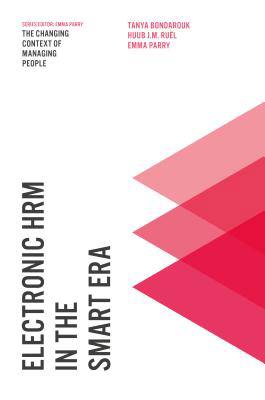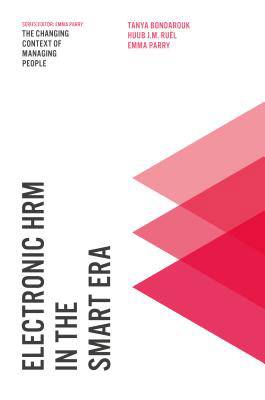
- Afhalen na 1 uur in een winkel met voorraad
- Gratis thuislevering in België vanaf € 30
- Ruim aanbod met 7 miljoen producten
- Afhalen na 1 uur in een winkel met voorraad
- Gratis thuislevering in België vanaf € 30
- Ruim aanbod met 7 miljoen producten
Zoeken
Electronic Hrm in the Smart Era
€ 199,95
+ 399 punten
Omschrijving
The HRM field is entering smart businesses where the human, digital and high-tech dimensions seem to increasingly converge, and HRM needs to anticipate its own smart future. Technological developments and interconnectedness with and through the Internet (often called the "Internet of Things") set new challenges for the HRM function. Smartness enacted by HRM professionals - notions of "smart industries", "smart things" and "smart services" - all put new pressures on strategic HRM. Since the 1990s, organisations have increasingly been introducing electronic Human Resource Management (e-HRM), with the expectation of improving the quality of HRM and increasing its contribution to firm performance. These beliefs originate from ideas about the endless possibilities of information technologies (IT) in facilitating HR practices, and about the infinite capacity of HRM to adopt IT. This book focuses on the progression from e-HRM to digital (d-HRM) - towards smart HRM. It also raises several important questions that businesses and scholars are confronted with: What kind of smart solution can and will HRM offer to meet the expectations of the latest business developments? Can HRM become smart and combine digitisation, automation and a network approach? How do businesses futureproof their HRM in the smart era? What competences do employees need to ensure businesses flourish in smart industries? With rapid technological developments and ever-greater automation and information available, the HRM function needs to focus on non-routine and complex, evidence-based and science-inspired, and creative and value-added professionally demanding tasks.
Specificaties
Betrokkenen
- Uitgeverij:
Inhoud
- Aantal bladzijden:
- 384
- Taal:
- Engels
- Reeks:
Eigenschappen
- Productcode (EAN):
- 9781787143166
- Verschijningsdatum:
- 26/08/2017
- Uitvoering:
- Hardcover
- Formaat:
- Genaaid
- Afmetingen:
- 152 mm x 231 mm
- Gewicht:
- 657 g

Alleen bij Standaard Boekhandel
+ 399 punten op je klantenkaart van Standaard Boekhandel
Beoordelingen
We publiceren alleen reviews die voldoen aan de voorwaarden voor reviews. Bekijk onze voorwaarden voor reviews.






